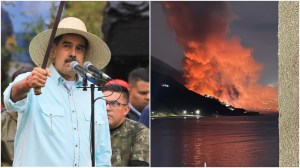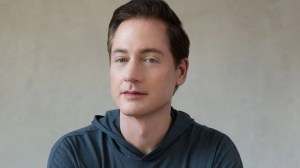Guts, grasp and gusto
BILL Clinton has said he intended to write two books. One about his Arkansas years, and presumably his student days on America8217;s east c...

BILL Clinton has said he intended to write two books. One about his Arkansas years, and presumably his student days on America8217;s east coast and in Oxford. The other about his presidential stint, presumably with mandatory scraps about Monica Lewinsky. His editors did not agree. They wanted a single volume. And so it was.
Rightly so. In this fragmentary, breathless record of a remarkable life, there is no master narrative. The story begins with his birth to a widowed mother in August 1946 and ends with a post-presidential summary of the world after 9/11.
There are the odd digressions, but it is pretty much a straight chronological telling. Of a turbulent childhood, with a loving but sometimes abusive step-father. Of a long stint in college in the turbulent 1960s, when storms of protest and creativity scattered old certainties in campuses. Of an almost instant plunge into electoral politics, of the many terms as governor of Arkansas, and then as president.
However, one cannot help but get the feeling that Clinton8217;s relied too much on piles of appointment books 8212; giving thumbnail sketches of global leaders met and cities visited.
It is in fact the first part of the book 8212; weighing in at a mere 200 pages 8212; that imparts coherence and vitality to the rest. It is not just that these pages throb with emotion and articulate engagement with the issues of the day. It is more the extent to which, from the beginning, the personal in Bill Clinton8217;s life has been so deeply political.
CLINTON appears to be destiny8217;s child in a unique way. There is no sense in the early pages of received or manufactured ambition to occupy the highest office in the US. There are no premonitions of a vault to the governor8217;s mansion. Yet, the journey seems inevitable. It is confirmed in his engagement with the world beyond his lonely self.
The 1960s were times of change 8212; they unleashed forces that would reconfigure almost the entirety of politics and culture in the US. And Clinton seems to instinctively grasp that the civil rights movements unfolding, the literature being written, the women8217;s movement hitting the streets, the music heard at Ray Charles concerts 8212; all of these are political expressions. His zeal in apprenticing with sundry Democrat politicians 8212; even sacrificing study hours in the process 8212; is matched with an almost insatiable hunger to read, to listen, to travel.
It remains unstated, but Clinton cottoned on early to the contours of an emerging politics. In his participation in intellectual and cultural debates, those student years served as intensive preparation for the 1990s 8212; when avenues for political expression would become more and more diffuse.
Bill Clinton would arrive in Washington and politicians in the US and beyond would take notice. He would pick up a saxophone, and mutterings would begin about this PR coup. Black poet Maya Angelou would read at his inauguration, and cynics would sniff the crafty populism.
YET Clinton to millions was a natural. The charisma helped. But perhaps most of it was genuine. My Life for the most part is too much of a compendium of presidential appointments and speeches. But these hurried jottings are irrigated with novel solutions. Clinton was a natural because he was the first practitioner of a new politics, because his life was always a learning curve.
Power, he early enough determined, was 8216;8216;a means to provide the security and opportunity necessary for the pursuit of happiness8217;8217;. Security and opportunity he found so glaringly absent in emotions that drove anti-Vietnam War demostrations and the charred remains of black ghettos after race riots.
Yet far-reaching change, he learned in Bobby Kennedy8217;s tragically aborted campaign, must be balanced by social stability. It could have been his family life that alerted him to this, those childhood years with an abusive step-father that taught him to address family trouble without rupturing otherwise loving relationships.
But it was also his family legacy that kept him so resolutely on the treadmill that he never really constructed one overarching achievement in his eight years as president.
His father8217;s premature death, he says, infused him with a sense of his own moratlity: 8216;8216;The knowledge that I, too, could die young drove me both to drain the most out of every moment of life 8230; even when I wasn8217;t sure where I was going, I was always in a hurry.8217;8217;
These hurried reminiscences thus replicate the texture of his life.
- 01
- 02
- 03
- 04
- 05































